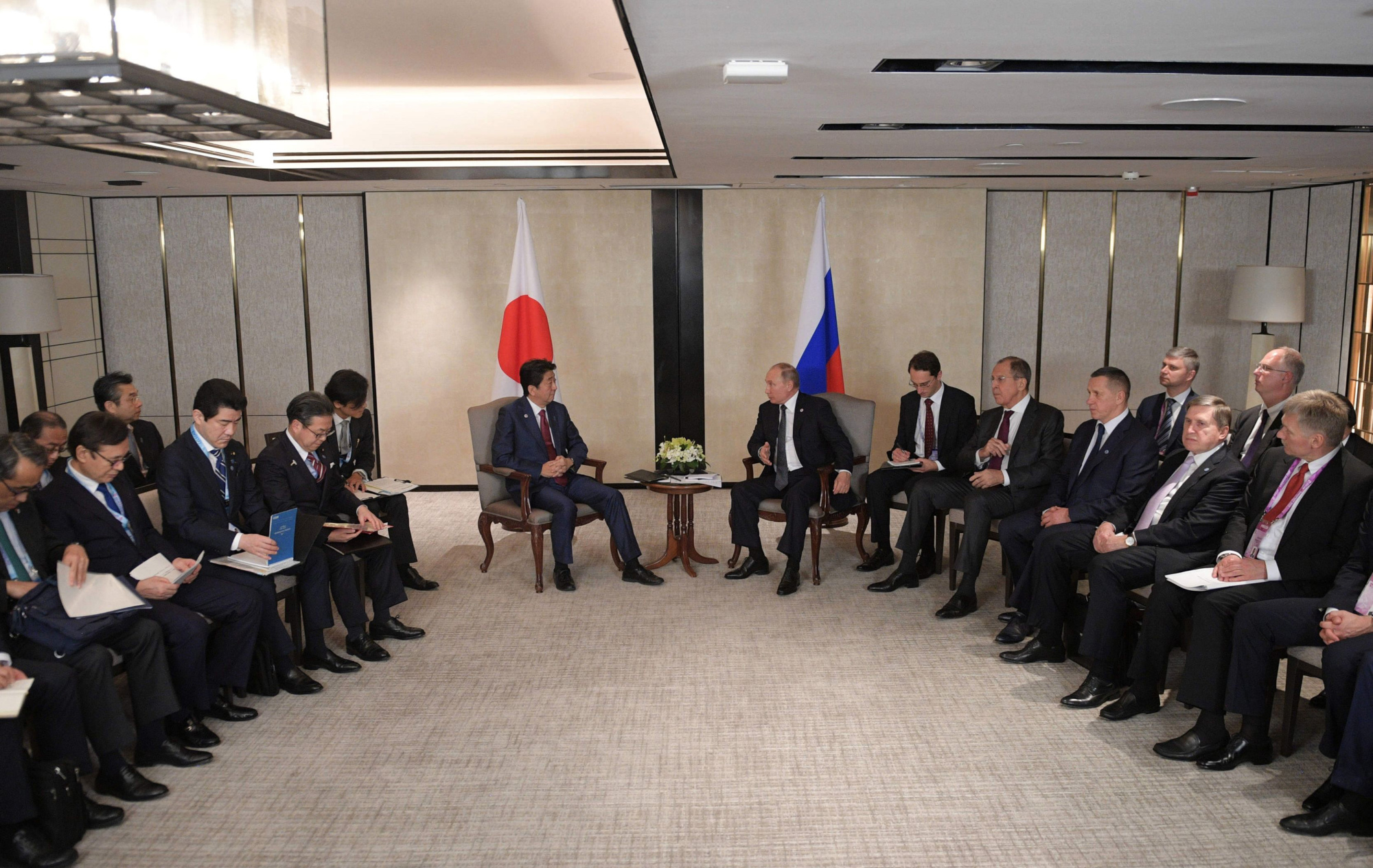For decades, every sign Russia and Japan had made progress in talks on disputed territories and a post-World War II peace treaty turned out to be a false alarm. This time may be different: Both Prime Minister Shinzo Abe Russian President Vladimir Putin need a deal more than their predecessors did.
Putin and Abe met in Singapore last week and agreed to speed up talks on a peace treaty their two countries negotiated after World War II but the Soviet Union refused to sign. The talks will be based on a joint declaration the Soviet Union and Japan signed in 1956 that required the Soviet Union to hand over to Japan the island of Shikotan and the Habomai islets once a peace treaty was signed. Japan has since insisted on the handover of two more islands, Etorofu (Iturup) and Kunashiri (Kunashir), and Russia has refused to cede any territory at all.
Both sides have strong misgivings about a compromise based on the 1956 declaration. For Japan, it would mean losing the leverage to claim much bigger territory (Etorofu and Kunashiri account for 93 percent of the land area of the disputed islands). For Russia, a deal is important (symbolically for the most part) to make sure no U.S. military bases are placed on Shikotan and Habomai, something Abe reportedly promised to Putin but may be unable to rule out under existing Japanese commitments to the U.S.



















With your current subscription plan you can comment on stories. However, before writing your first comment, please create a display name in the Profile section of your subscriber account page.